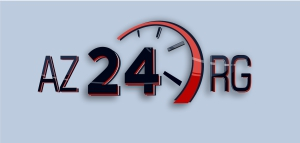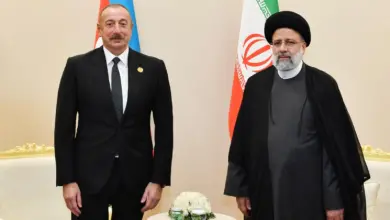Jews facing US campus antisemitism now have the chance to study in Israe

When students at Manhattan’s Ramaz Upper School meet with director of college guidance Raphael Blumenthal this fall as part of their college search process, he will have more options to share than in past years – as long as students and parents are willing to expand their search to include institutions of higher learning in the Holy Land.
Blumenthal and nine other college advisers from Jewish day schools in the United States – including SKA, Ramaz, Ma’ayanot, Yeshiva High School for Girls, Bnei Akiva Schools, RASG Hebrew Academy, Frisch School, Beth Tfiloh Dahan Community School, Schechter School of Long Island, and the Melvin J. Berman Hebrew Academy – recently returned from an exhausting, exhilarating, and eye opening trip to Israel from June 24-27 where they visited nine colleges in four days to learn about Jewish life-rich, antisemitism-free, Hebrew language-focused, cost-effective, three-year options for studying for a bachelor’s degree in Israel.
While many of the college advisers were already familiar with such Israel study options as the decades-old Hebrew University and Tel Aviv University (TAU) overseas programs and the 30-year-old Reichman University (formerly known as IDC Herzliya), the trip was an opportunity to refresh their memories about them and learn about a range of additional options at Ben-Gurion University of the Negev, Ariel University, Bar-Ilan University, Jerusalem College of Technology/Machon Lev, Technion-Israel Institute of Technology, and the University of Haifa.
While the Reichman degree program is in English, most programs involve students spending the first year taking academic courses in one’s major area of study in English while simultaneously taking intensive Hebrew language courses.
The goal is for students to transition to the university’s regular Hebrew language academic program where they will complete their degree.
Many will elect to stay in Israel – which is in line with the goal of its funder, David Magerman.
MAGERMAN HAS long been a supporter of Jewish day schools through his Kohelet Foundation, which was in operation from 2009-2019. His newer venture, the Tzemach David Foundation, founded in 2022, is a grant-giving and operational foundation that is “dedicated to transform the Israeli educational system by providing comprehensive support and fostering innovation.”
A University of Pennsylvania graduate and until recently, a Penn donor, Magerman has been very public in criticizing his alma mater in recent months over both the Palestine Writes festival held a UPenn last September, and anti-Israel and antisemitic protests on the Penn campus in the wake of the Gaza War. The philanthropist has discontinued millions of dollars in support for Penn and has redirected some of his money to Israeli institutions of higher learning.
Magerman, who is also a member of Yeshiva University’s board of directors, recently gave $1 million to Jerusalem College of Technology/Machon Lev and announced additional $1 million gifts to the Technion-Israel Institute of Technology, Bar-Ilan University and two others to be announced soon.
TAMAR KRIEGER, executive director of the Tzemach David Foundation, notes that supporting institutions of higher learning in Israel “became a natural outgrowth” of his previous support of higher education in the United States.
It also fits in with an important goal of Magerman and the foundation – to encourage young people to make aliyah at a period in their lives before they have become settled in to careers and married life.
Krieger shares that one goal of Magerman’s new foundation is to “make aliyah easier,” stressing that “olim integration should be a goal.” They are hoping that mastery of Hebrew and obtaining a bachelor’s degree from a top Israeli university – while socializing with Israelis and enjoying rich Jewish life on campus – will help their ultimate successful integration into Israeli society.
Krieger is working to operationalize and implement this vision and ultimately share it with college advisers at Jewish day schools in the US. She observes, playfully, “We found college advisers to be the low hanging fruit – they are the ones who tell the students where to go – they have to have info about student life, in the same way they know about Penn and Binghamton,” a leading SUNY university.
Before putting together the Israel trip, Krieger and the foundation needed to learn more about the programs the Israeli universities already offer as well as the types of support they offer students.
ONE HELPFUL starting point was Maureen Adiri Meyer, who for thirteen years has served as director of Lowy International School at TAU.
She explains that the university already has a long history of supporting the specialized and evolving needs of students, which predate October 7. The director notes that their support of current students from India, China, the EU and the US, through their dual degree program with Columbia University reflects their ability to meet unique needs of various groups of students.
Adiri Meyer offers that their experience meeting such needs will be helpful in supporting future students.
As an example of TAU’s ability to adapt, she shares that it began realizing the needs of Modern Orthodox students who began participating in the Columbia program during the Covid pandemic in 2020.
“They were used to Hillel and Chabad on campus and were looking for something,” she says.
“Some of our kids were living in Herzliya and coming to Ramat Aviv to learn.” These students were choosing to live close to Reichman University where they could take advantage of the robust Jewish Learning Initiative on Campus program of the Orthodox Union.
As a result, Adiri Meyer and her team collaborated with JLIC to start a program at TAU.
RABBI JONATHAN Shulman, who served as the initiative’s director at Penn from 2010-2014 and now serves as director of OU-JLIC in Israel, actually credits a pioneering group of gap-year students who approached him nearly ten years ago who pointed out the lack of supports for students from abroad. “They came to me and said, ‘Why should we lose out?’”
In 2017, a JLIC couple came to Reichman. “Increasingly, an idealistic group of students chose to be here,” Shulman reports, noting that Hillel on Israeli campuses has always focused on Israelis, but there was “no one working in the international student space.” The initiative’s work then expanded to Bar-Ilan and has continued to grow on campuses throughout Israel.
Adiri Meyer feels that creating community for these students on campus – through JLIC and in general – will be a major key to the success of the students in Israel. She has enjoyed working with Rabbi Shulman, noting, “It has been fabulous working with him since day one.”
Shulman credits Magerman for his long-time support of JLIC and for helping set up a structure to support foreign students. “David has been a visionary and took it to the next level – even before 10/7.” Shulman notes that over 20% of gap-year students remain in Israel and that “not all go right to college first.” Shulman is pleased to partner “with great universities” and credits them with continuing to grow and evolve as they offer hybrid programs for these students.
The Israel OU-JLIC director also praises the Diaspora Affairs Ministry for their support. Amichai Chikli, Israel’s Minister of Diaspora Affairs and Combating Antisemitism, connects his support of the new initiative to current events in Israel and around the world.
An entire nation under attack
“On October 7, a severe war began not only against the State of Israel, but against the entire Jewish people,” he says. “Jewish communities worldwide found themselves under severe attack, culminating in violent riots and displays of hate on elite campuses in North America. The State of Israel serves as a home and refuge for every Jew regardless of their background, and makes great efforts to assist as much as possible.
“The ministry is proud to promote this program in collaboration with the Tzemach David Foundation, aiming to increase awareness of the various study programs offered by universities in Israel,” Chikli said. “We invite all students to consult with the advisers about the many academic opportunities in Israel.”
Adiri Meyer is happy to welcome these students to TAU. She feels having these American students complete their undergraduate degrees there can be beneficial both to them and to the university community. She notes that they will receive a top level, affordable, Jewishly rich education in Israel in three years, while also enhancing life on campus.
“We are the largest university in Israel with 30,000 students,” she says proudly, noting that most undergraduates are 23 and after their army service. “Having these American students study in the university will add a lot to the university. The more integrated they become, and the more our Israeli students meet smart, talented kids from around the world, the more global they will be.”Once Krieger and the foundation better understood the landscape of higher education in Israel, they decided to move quickly to invite college advisers on the quickly but carefully planned Israel trip.
ESTHER GENUTH, a member of the College Guidance department at the Frisch School in Paramus, New Jersey, was delighted at the invitation to participate on the trip.
She notes that her entire department has been observing a trend in the past five years towards more gap year participants staying in Israel to complete army or national service and to remain in Israel for college. She notes that Frisch even offered a panel this year where three Israeli universities shared information about their programs. “There has been an even bigger shift this year toward exploring Israel study options,” she says.
Genuth was pleased with how they were received and with what they learned. “The schools were so grateful for us coming,” she observes, adding that she was pleased to learn how “Israeli schools are adapting and forming new programs for both those who plan to make aliyah or (who) go back to America.”
She feels well prepared to share updated information with her students, which she obtained first hand. “Seeing places and meeting people was invaluable,” she reports. “After the trip and after meeting with JLIC, I have no doubt our students will be successful!”
ANNE GREENSPOON is co-director of college guidance at Berman Hebrew Academy in Rockville, Maryland, where she reports that more than 90% of students traditionally participate in gap year programs in Israel, mostly yeshiva or seminary. “In the past, a handful had plans to do a gap year, then IDF service, then maybe come back for college. Now, parents want a backup plan,” she says.
Greenspoon has observed a shift in her students as they consider post gap-year plans. “This year, we saw more students who planned to return to America for college changing their minds. Many are choosing to stay and serve in the IDF.” Many of those students may elect to remain in Israel for college.
The college guidance co-director further notes that, when she and her Berman colleagues began one-on-one meetings with 11th graders and their parents in January to discuss college options, “Many said they were only considering Yeshiva University or Touro (Jewishly affiliated) colleges – or college in Israel.
After Passover and the pro-Gaza/anti-Israel encampments, more people asked, ‘what do you know about universities in Israel?’ We have been talking about this a lot.” She notes that the school hosted a webinar in May with Rabbi Shulman of JLIC for their college counselors.
For Greenspoon, the Israel trip came at a perfect time. “The big thing for our students is that they feel they will miss out on campus life. I think these new programs, where they can attend university in Israel alongside a JLIC community, is a big game changer for our students!” She also notes that “these new hybrid programs will attract students who are a little older and may be good for those who served in the IDF or did national service.”
She anticipates the concerns of her students’ parents about both just how competitive the Israel universities are, and how the Israel degree will be viewed if they come back to the US.
ADIRA MEYER of TAU assures potential applicants that “students will be studying with top academics in a top university.”
And while Ramaz’s Blumenthal knows that the Israel university option is not for everyone, he already has a top student in mind for university study in Israel. “I am thinking of a student who will thrive at the Technion or Jerusalem College of Technology/Machon Lev – he will love having Torah learning alongside the academics.
“I am intrigued, excited and impressed with the level of education that Israel universities provide,” he says. “They clearly have top-notch experts in their fields. When you think about the Start-Up Nation, they are providing an education that is producing world leaders.”
It is now up to the college advisers to share their newly acquired knowledge of the Israel university option with their students and their families. Magerman, the universities and the Start-up Nation eagerly await their arrival.





